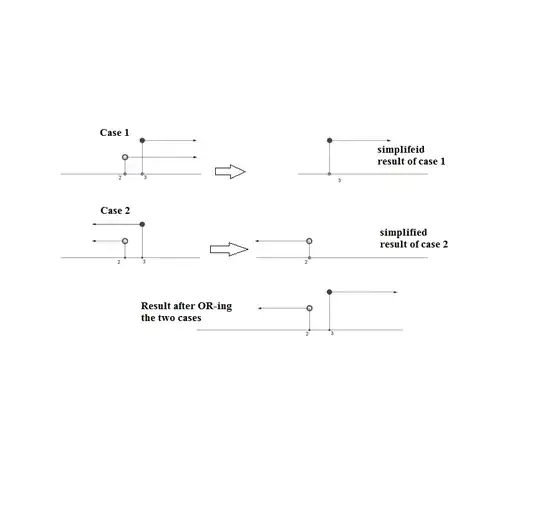I'm tasked to prove the above implication. However, as this implication has the general form of $P \implies (Q \lor R)$, it's equivalent to $(P \land \neg Q) \implies R$ where
$P:\frac{x}{(x-2)} \leq 3$,
$Q: x<2$ and
$R:x\geq 3$ .
We've used this logical equivalence extensively throughout the chapter, so I'm guessing we should also apply it here. I can't figure out how though.
If I use $(P \land \neg Q) \implies R$, I run into a problem. Assuming the antecedent, $(P \land \neg Q)$, and laying down the foundation of a possible proof, I get:
"Suppose that $\frac{x}{(x-2)} \leq 3$ and $x\geq 2$"
...which is a wrong start, considering $x\geq 2$ can't possibly be correct since that would mean that $x-2$ could amount to zero, and then I wouldn't be able to multiply both sides by $(x-2)$.
How do I go about proving this?
